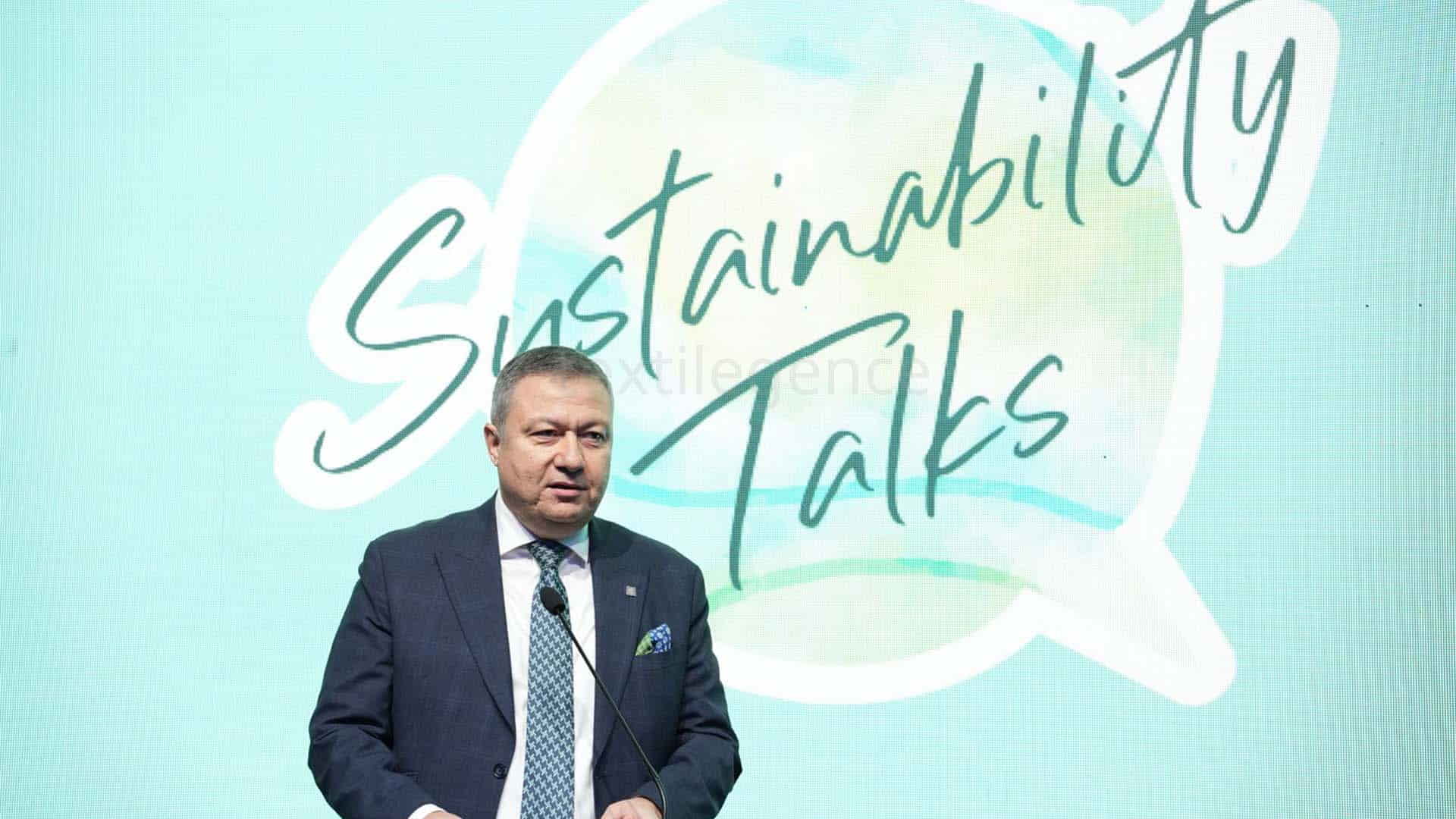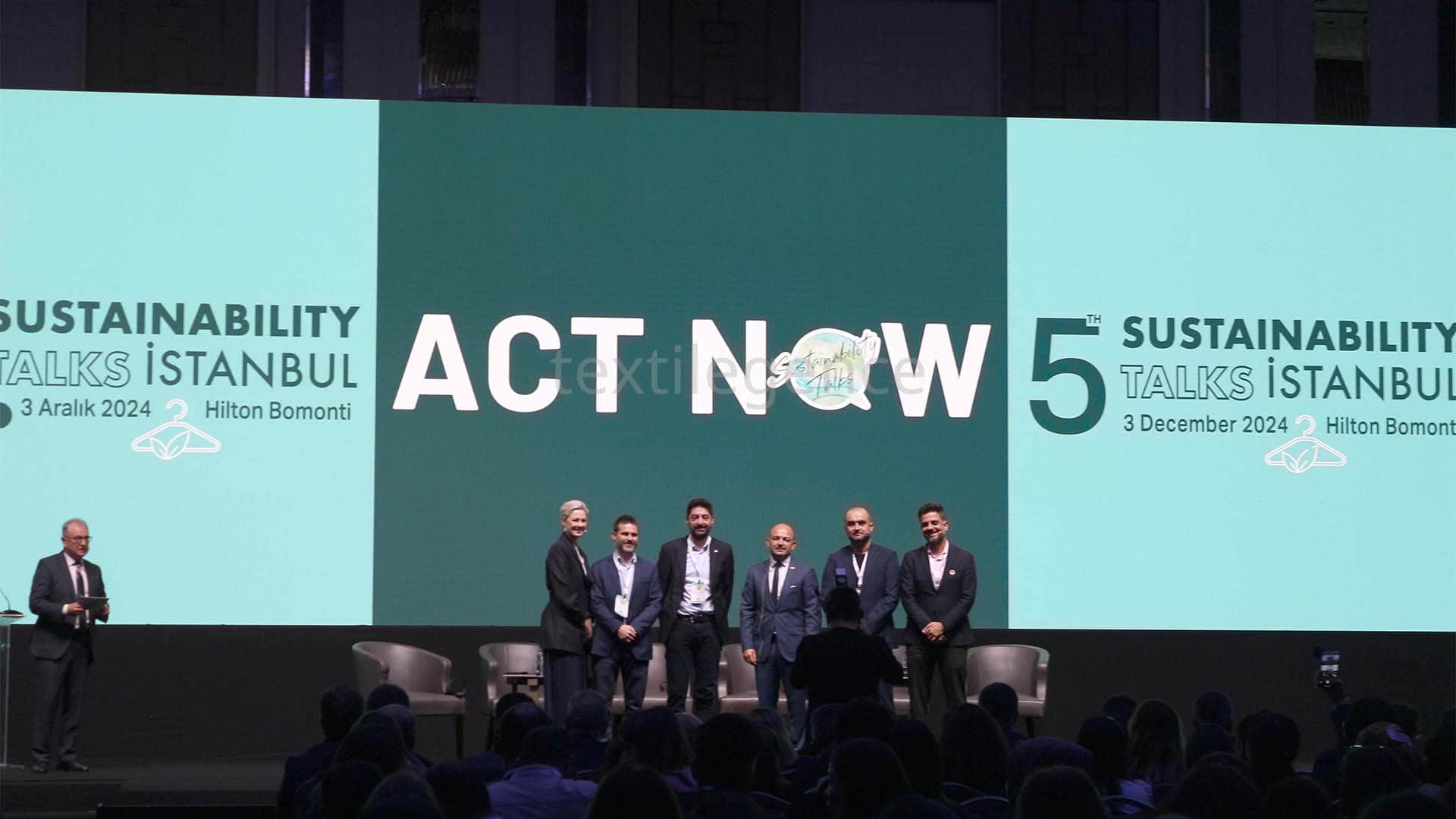This year, the fifth ‘Sustainability Talks Istanbul’, with the theme ‘Act Now’, brought together the important stakeholders of the textile industry at Hilton Istanbul Bomonti, providing an important platform where innovative ideas and solutions in sustainability and innovation in the industry were discussed. The event, organized in strategic partnership with the Istanbul Textile and Raw Materials Exporters’ Association (ITHIB) and in collaboration with Orbit Consulting – Kipaş Holding, included panels that evaluated the future of the industry. The panels featured important names in the industry such as European Climate Pact Ambassador Marwa Zamaray, Cardiff University Lecturer Dr. Hakan Karaosman, Urban Outfitters Senior Purchasing and Sourcing Manager Cherie Nelson and Lacoste Vice President of Research and Development Innovations Patrick Vignal.
“Brands should do their part for sustainability as much as manufacturers do”
Speaking at the event, ITHIB Board Chairman Ahmet Öksüz drew attention to the fact that brands place more of a burden on the shoulders of manufacturers, saying; “Our manufacturers can often face both product returns and product rejections. If we want a product to be truly sustainable, consumers and brands should be able to tolerate differences in recycled products and production made with conventional methods. Because the carbon footprint created by the freight during the return process can reach very serious dimensions. Brands should shoulder the burden for sustainability as much as manufacturers do”.
“The rate of fiber recycled into apparel is only 1 percent”
Underlining that the textile industry has global importance not only with its economic size but also with its environmental impacts, Ahmet Öksüz said that the amount of textile-apparel products consumed each year is 62 million tons and this figure is expected to increase to 102 million tons by 2030. Öksüz; “The annual textile waste per person in the EU is 12 kilograms. The fashion industry is responsible for 10 percent of global carbon emissions, 87 percent of the fiber used in apparel produced worldwide is either thrown away or burned. The rate of fiber recycled into apparel is only 1 percent. As an industry, we should review our homework once again by looking at this data that we are all familiar with. In this context, we are in contact with all our ministries, especially our Ministry of Trade”.
Öksüz said that brands are putting sustainability on the shoulders of producers and this is upsetting the balance in the industry, he continued saying, “This situation is not only undermining production processes. It is also undermining the holistic sustainability goals of the industry. Moreover, the complexity brought about by the different and constantly changing certification processes imposes on our producers the feeling of ‘no matter how hard you try, it will never be enough’. Unfortunately, this whole process is causing ‘greenwashing’ to be scrutinized more”.

Sharing two examples from the industry on this issue, Öksüz relayed; “An apparel product produced in 22 thousand units was returned due to very small fluffing caused by the production process and the texture of its fabric, even though there was no problem with the product quality. In another example, a dispute occurs between the manufacturer and the brand on the grounds that there are small differences in the fabric produced from recycled cotton in two products, one made of recycled cotton and the other of conventional cotton. If you use recycled cotton in production, these differences can occur no matter where you go in the world. The demand for a conventional fabric appearance by using recycled cotton pushes our manufacturers not to produce recycled products”.
“Carbon emissions caused by freight during the return process can reach very serious dimensions”
Ahmet Öksüz drew attention to another issue that is lot differences, he said; “Due to lot differences that can only be observed in a laboratory environment, our companies can often face product returns. If we want a product to be sustainable, we should invite both consumers and brands to be sensitive to these small differences. Because, carbon emissions caused by freight during the return process can also reach very serious dimensions. Therefore, unfortunately, we observe that we are not that sustainable. In order to make sustainability sustainable, manufacturers need to change their working methods, and brands need to be at least as aware of corporate social responsibilities as manufacturers and take on the responsibility”.

